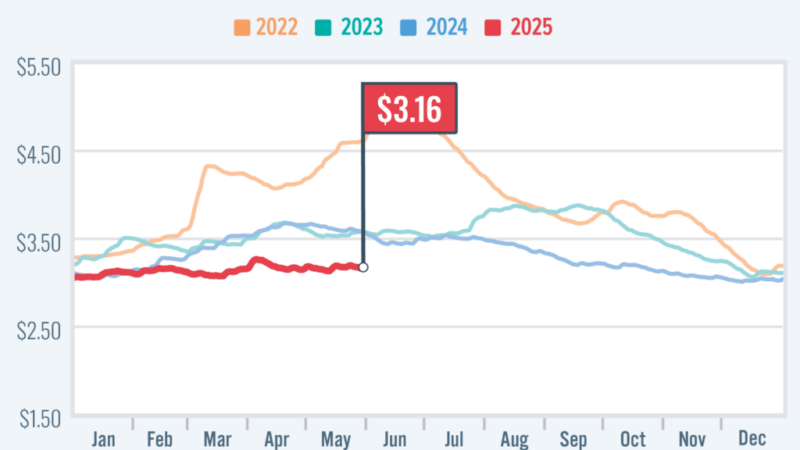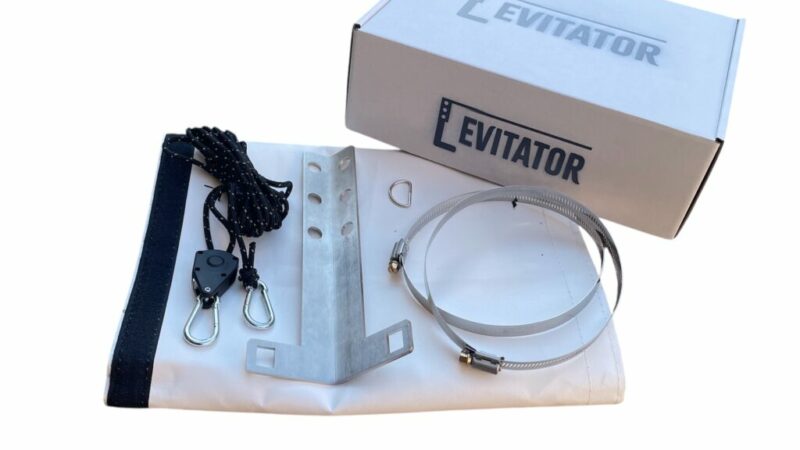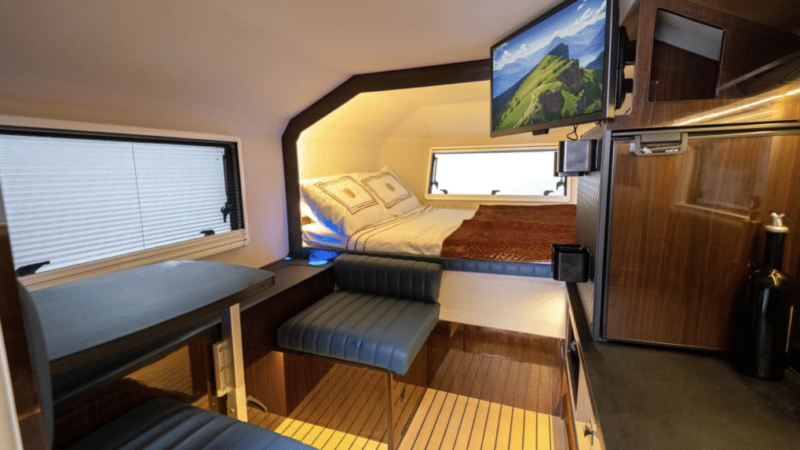MORryde Seeing Benefits to Digitized Manufacturing System – RVBusiness – Breaking RV Industry News
ELKHART, Ind. – MORryde — a family-owned local manufacturer of RV suspension systems, metal fabrication, chassis modification and more – recently gave a tour and presentation of the plant where the company has been implementing a digital Manufacturing Execution System (MES) by Pico.
MORryde Process Improvement Engineer Gregg Whitt, who has been working closely with Pico through the implementation process, spoke to RVBusiness after the tour.
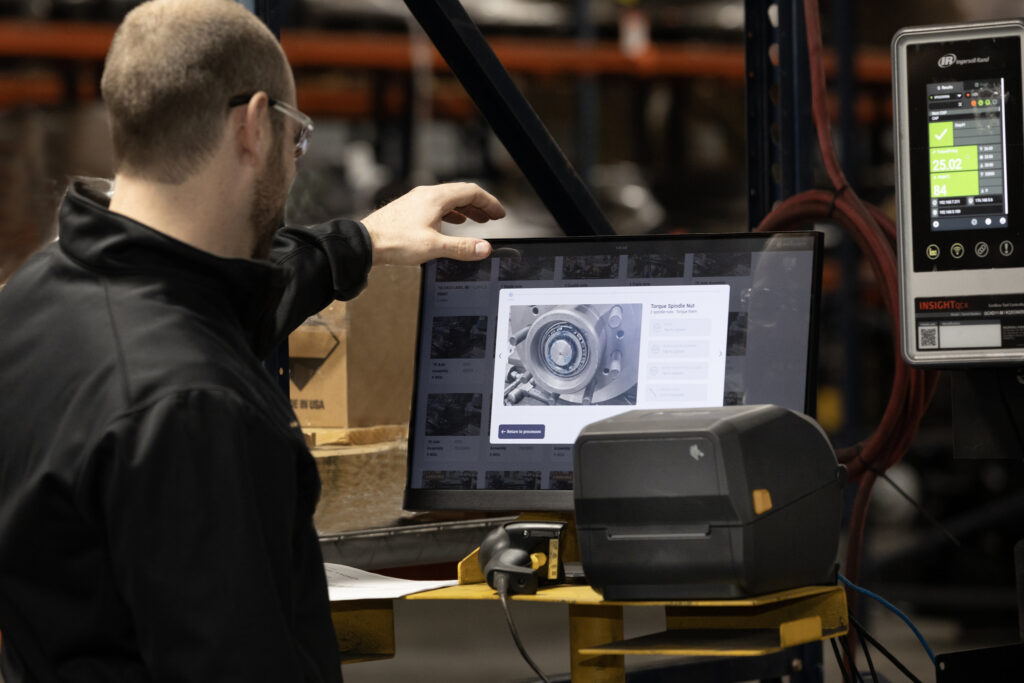
Whitt said they were first introduced to Pico about two years ago when they came for a presentation, “And took a look at our manufacturing cells to determine what they might be able to provide. Then they offered us a 30-day trial to see what level of utility they might bring.”
He explained in the chassis modification plant they were looking for a bulletproof method of capturing the torque values when re-installing the drive shaft, regardless of what brand of chassis they were working on. He said their ERP (Enterprise Resource Planning) system had visuals, so they wanted something that could integrate with production. Pico said they could provide that.
“So, we embarked on a 30-day free trial hoping to get functioning cells in the applications,” Whitt said, adding that it took longer to get all the pieces in place so Pico “graciously extended the trial period.”
Whitt said he learned from Pico’s Ryan Kuhlenbeck – the CEO for the California-based company who was present at the MORryde tour – that large manufacturers in the automotive and aerospace industries have been utilizing MES pretty extensively,. So, Pico is working to take those tools, utilities, tracking and data and make a very light and flexible platform and bring the software to small manufacturing systems.
Whitt said the first application they employed was in the drive line drive shaft reinstall process. Once they got that going, they applied the Pico system to the SP (Special Products) assembly, where they installed 13 Pico stations and, in November, they added Pico to the Independent Suspensions assembly.
Whitt said Pico’s real wheelhouse is if a utility is connected to tooling — such as torque tools, cameras, scales, calipers, etc. In MORryde’s drive line, torque tools are connected to the Pico software and also to MORryde’s ERP system.
“The operator still gets the same paperwork that travels with the chassis, but it has a barcode that he scans and Pico pulls up the connected work order,” he said.
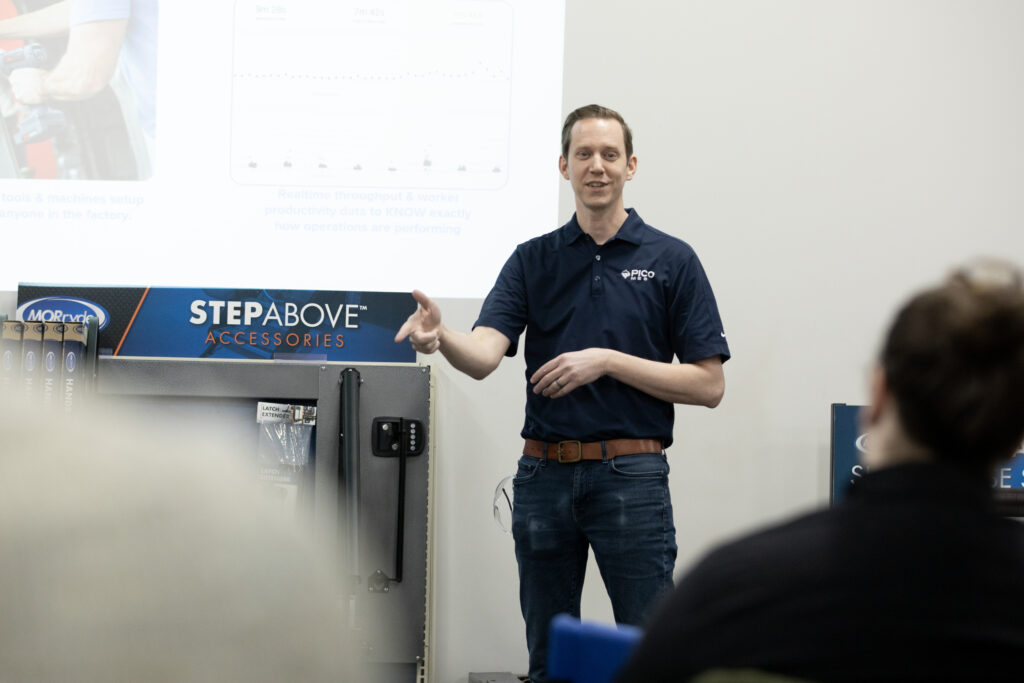
The operator will have all the information — whether it’s a Ford or Chevy chassis, 12-inch stretch or 60-inch stretch, and will give him instructions on the screen as to which fasteners to use and how many torques to tighten it and it records all that information.
The Pico system has given MORryde error-proofing it didn’t have previously and improved quality control methods and gives them backwards traceability.
“It took some effort to get it off the ground but, once we got there, it’s pretty exciting,” Whitt said.
He shared that Pico’s goal is to bring about a 10%, 20% or 30% production increase – not necessarily by means of changing one big item, but by providing platforms to make a lot of small improvements over time. It’s been reported, and Whitt confirmed, the validity of a 50% increase in production in the Special Assembly area, but he stressed that it is in that one area.
They have 13 different plants and only 20 Pico stations. “There’s still a lot of places to integrate it and there is massive potential for production increase,” he said. “Pico gives so many potential solutions integrated that it’s phenomenal.”
He explained before Pico, the only way to communicate with production was via 2D engineering prints and if it was a complicated job, it could be multi-pages.
“MORryde’s forte is low volume production with opportunity-driven engineering solutions, so some local OEM manufacturers might send 20-50 pieces of an assembly on a weekly basis, while others may send 20 pieces every few months, so the learning curve is pretty steep,” he said, adding that previously they relied on someone to recall how the job was done last time they saw it.
“Now we have a PowerPoint with all kinds of links and pop-ups that are put in Pico, and when they scan the work order all that information comes up. If there are variations to the design, rather than hoping production will notice a notation on a print, they can insert a pop-up that will ensure they’ll see it,” he said.
When asked what the biggest benefit to MORryde having the Pico system, Whitt said, “That’s not an easy question to answer” because he said the value of increase in production is valuable “but at the same time, the backwards traceability is hard to put a specific value on.”
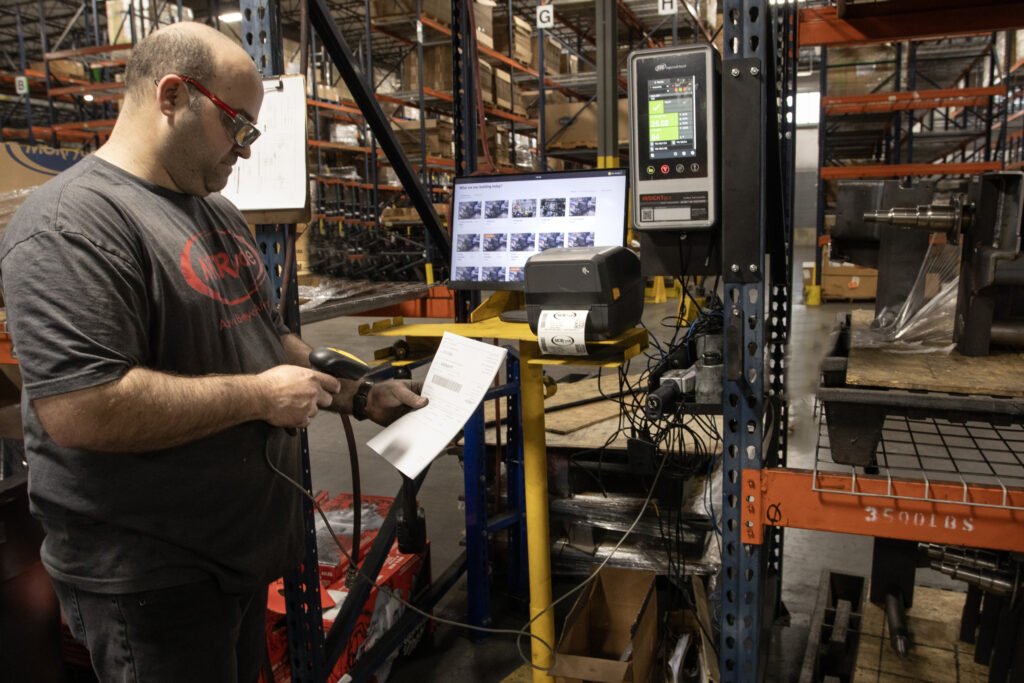
“What Pico brought to the table that we didn’t have a solution for previously is quality assurance, backwards traceability and error proofing,” he said. “What’s fantastic is that the Pico application is so versatile — we’re brainstorming ways to use it in preventative maintenance.”
He said time studies are another area where Pico is prevailing. Before they’d have someone watching a process with a clipboard and a stopwatch collecting information for about a week. “Now with Pico we have a constant time study on all of those (processes) — you’d never have that level of detail (without it).”
They also have the capability to maintain and upskill employees and Whitt mentioned in their Independent Suspension department its very detailed work and only a few employees are trained. The amount of time it takes to bring in someone new and get them up to speed takes weeks. With Pico they can utilize training modules, freeing up a potential trainer. Pico also enabled them to migrate nearly 700 paper processes to digital.
Aside from Pico representatives and the media, members of the Elkhart Chamber of Commerce attended the presentation and tour on Jan. 17.
Whitt relayed that during the presentation Kuhlenbeck explained if they can provide operators with digital work the operators don’t have to spend so much time thinking of the next steps they have to take which frees up their minds, turning those operators into an asset, creatively thinking of potential improvements.
Whitt said it’s important to MORryde’s officials that they have a positive culture on the production floor so as they were building the digital platform, they asked the employees for their input and their tips and tricks, which were added into the platform. They also assured them this system will have their backs if there are any issues or questions.
“Pico is another way for us to operate better and is a tool to help us be as effective as possible,” Whitt said.



